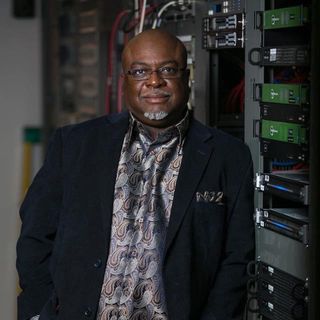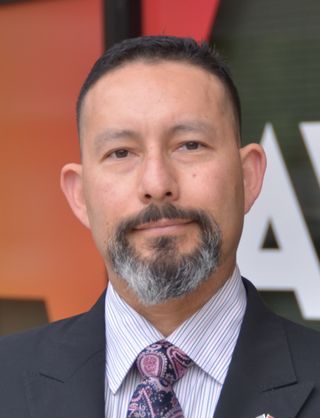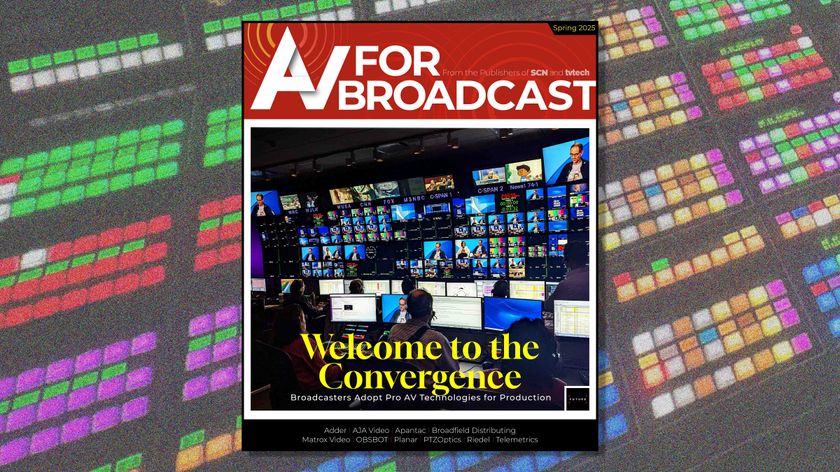As savvy AV systems integrators are well aware, their field technicians have considerable influence over their brand image. Not only can their quality of workmanship make or break a system; many are also required to interact with clients and other trades, mandating a solid combination of both tech and people skills. While many individuals are naturals at either one or the other—and in the best cases, both—it’s unfair to ask them to represent your company the way you want them to unless you tell them how. But first you must decide: what makes a great field tech?

“I think as a field technician it’s a given that you’re technically competent—that’s table stakes and a minimum requirement to occupy that role and do the baseline,” said Michael Judeh, senior director of AV technology at Convene, an event facilities and flexible workspace provider headquartered in New York.
This isn’t where it stops, however; Judeh believes that good social skills make the difference between being an okay tech, and being a great one. “It takes time to develop a technical acumen and a vocabulary and a database of situational awareness, and remediation for issues, and the hard skills required to be a really great technician, and you need enough time to do that. And really the only way to buy yourself enough time to do that is by being someone other people want to work with and be around … [so that] people are willing to spend time with you and give you a chance to get to that point.”

Derrick Davis, EST, ESC, is founder, CEO, and lead instructor at AV Technology Institute. The school offers an eight-week Electronic Systems Integration Technician (ESIT) vocational training course that covers both commercial and residential installation environments. Davis’ definition of a great field tech is one that is comfortable with creative problem-solving. “You know the old saying that you can’t take a square peg and put it in a round hole? Well, a good technician can,” he illustrated. “That technician is going to figure out: ‘all I have to do is sand the edges of the square peg to make it round, and it’s going to go into this hole.’” Great technicians, he says, are those that accept that sometimes getting from Point A to Point D isn’t always a straight path. “Sometimes it’s B-D-E- to get to A-B-C-D. To me, that’s what makes a great technician, is someone that can think outside the box.”
“If you’ve come up to a problem—something new that you haven’t seen before—I don’t want that technician to say, ‘I just can’t do this.’ I want that technician to look at it and say, ‘Okay, how can we fix this? How can I make this better for everybody else down the road?’” said Chuck Espinoza, CTS-D, CTS-I, senior staff instructor at AVIXA. Great technicians, he says, don’t give up––even if it’s Friday night and the system still isn’t up and running. “That’s the thing I look for in an AV technician. I’ll teach you the rest.”

Great technicians are also detail-oriented, said Espinoza. “Some of our soldering points are so tiny, if you touch just a tiny little bit of solder to another bit of solder and you don’t pay attention to it, it could short something out. Even the way our cable is pulled has an effect on our bandwidth. A good AV field technician has to pay attention to detail, and that goes hand-in-hand with never quitting.”
For Judeh, developing great tech field techs requires AV integration firms to commit to investing in skills development, mentoring, and growth. He argues that in building a dedicated career path—including the training and opportunities associated with it—companies stand to gain a considerable return on investment, especially when one considers the expense of recruitment and attrition.

AVIXA offers a number of courses that are well-suited for would-be field technicians, including the Recognized AV Technologist certification. From there, techs may pursue their CTS, or complete AVIXA’s Installation Program, and eventually move through its Designer Track. But aside from these certifications, AVIXA's Espinoza urges aspiring AV professionals to join online forums, LinkedIn and Facebook groups, and Twitter feeds to build relationships and gain insight from veterans of the industry.
“If you took that money and you invested that back into development, you would have a staff that you can keep around longer, that are better at their job—which will yield higher customer satisfaction—and all it really requires is a commitment from the organizational leadership to build and implement training plans,” he said. This can be done in-house, or in partnership with an organization charged with course content development and delivery, depending on the firm’s internal resources. “But to me, that investment is always going to pay its dividends very quickly.”
Aside from in-house training, and professional development and certification courses, Judeh would like to see a more formal educational path for those interested in pursuing professional AV as a career. He envisions an 18-month program targeted at high school graduates: “An 18 year-old who doesn’t necessarily want to go to four years of college but is probably still skilled and very intelligent and just wants to apply those skills but can’t find the way to do so,” he illustrated. “This would give them an opportunity to formalize that education and give employers more of a reason to take a chance on them.”
There is also a need to better promote the AV industry to young people, Davis argued. “The young talent that’s out there does not know that this industry exists,” he said. He relays that when he holds open houses at his school to explain to both young people and their parents what the AV industry is all about, he’s often met with comments like, “I thought electricians did that.”
“I think both the residential and commercial industries need to come together and do more about promoting the industry. We need to really get out there in the communities and let young people know that this is an exciting career.”













